The Power of Stillness: How Ancient Greek Philosophy Teaches Timeless Life Lessons

In our modern world of constant stimulation and distraction, stillness can feel like a rare and elusive state. Yet the great philosophers of ancient Greece valued stillness and saw it as the gateway to happiness, wisdom, and purpose. Their teachings on cultivating stillness contain powerful lessons that remain deeply relevant today.
In this post, we'll explore key ideas around stillness from ancient Greek philosophy, particularly stoicism. And we'll see how these timeless principles can help us bring more stillness into our busy 21st century lives.
Why Ancient Greek Philosophy Still Matters Today
It's remarkable that philosophies formulated over 2000 years ago can still offer practical guidance for the problems we face in modern life. What is it about stoic philosophy that makes it so universally applicable?
A core reason is that stoicism focuses on the basic, universal realities of the human condition. The stoics concerned themselves with virtue, perception, self-control - issues central to living a good life in any time period.
Stoicism doesn't present some convoluted metaphysical theory. As Ryan Holiday puts it, it offers "really practical life advice." The stoics simplified things into two essential categories - what we control and what we don't control. This clear delineation cuts through the complexities of life.
Marcus Aurelius, Epictetus, Seneca and other stoics struggled with the same fundamental questions we face today - how to handle adversity, deal with difficult emotions, find meaning and purpose. Their writings offer guidance grounded in centuries of human experience.
The Paradox of Chasing Happiness
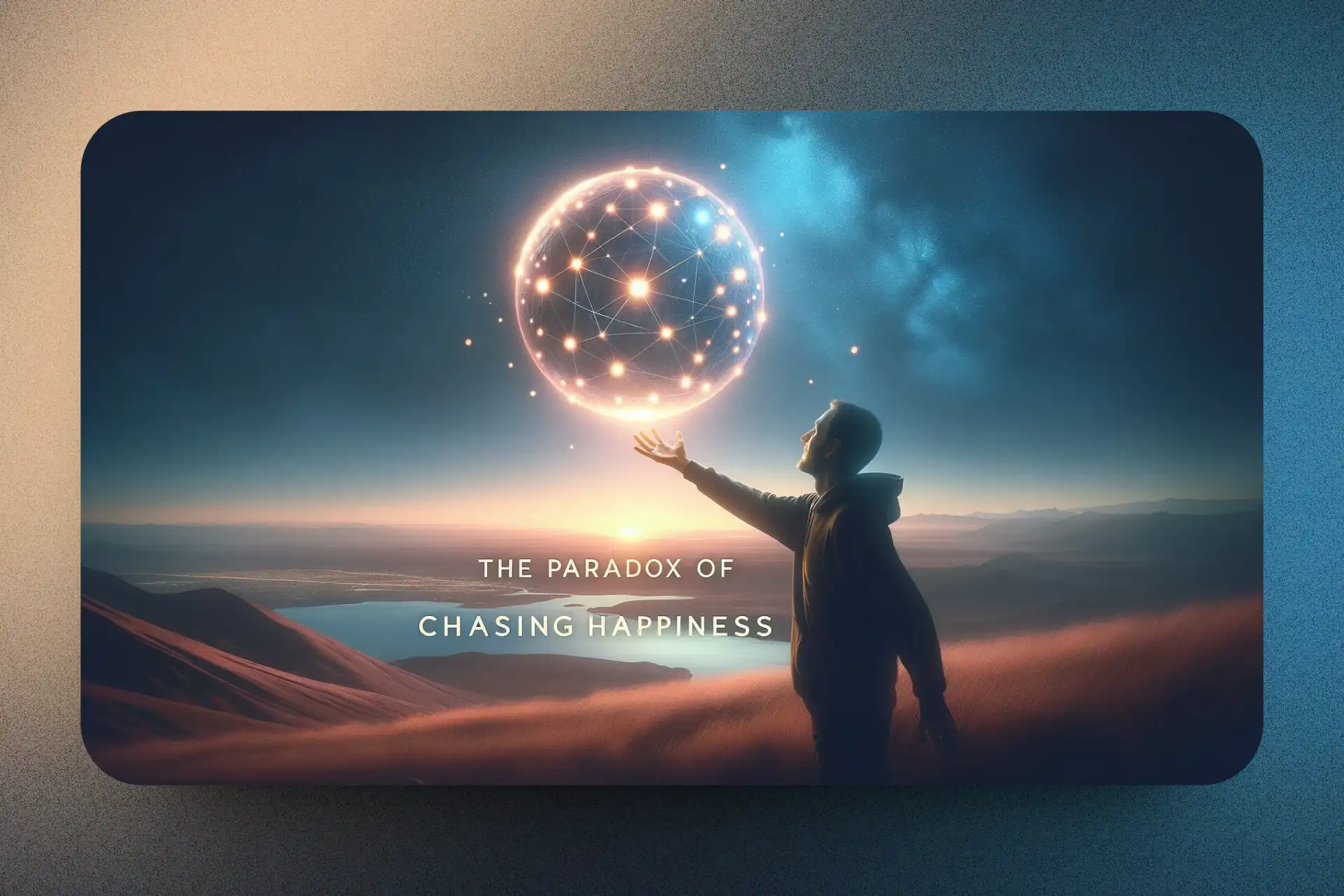
A core principle across ancient Greek philosophy is that directly chasing after happiness is futile. As the stoic philosopher Epictetus put it: "Happiness cannot be pursued, it must ensue."
Trying to engineer happiness through external accomplishments or material possessions never works. At best, these things provide fleeting satisfaction before the mind moves the goalposts towards the next desire.
Happiness only arises as a byproduct - of stillness, virtue, perception, accepting what we can't control. This remains just as true today. No titles, salaries, or social media metrics can directly fill internal voids.
As Ryan Holiday notes, we must cultivate the humility to realize that happiness "is ephemeral - it comes for chunks of time and then it goes away." Stillness provides space for happiness to naturally arise.
The Disappearing Act: Minimizing Distractions

Achieving stillness requires first "disappearing" from the many distractions that consume our attention today - TV, social media, news, video games.
We must set rules and restrictions to minimize these attention sinks. Then redirect that mental energy towards establishing a routine and habits that enable stillness.
This is similar to the "preferred indifferents" concept from the stoics. We aren't renouncing all possessions and entertainment. The goal is being self-directed, not dependent on external stimulation, able to focuses our energies purposefully.
Disappearing from distractions is a prerequisite to directing attention inward. Modern life conspires to keep us constantly stimulated, reacting versus proactively focusing. Regaining stillness requires swimming against the cultural current.
Mastering Yourself Through Routines and Habits
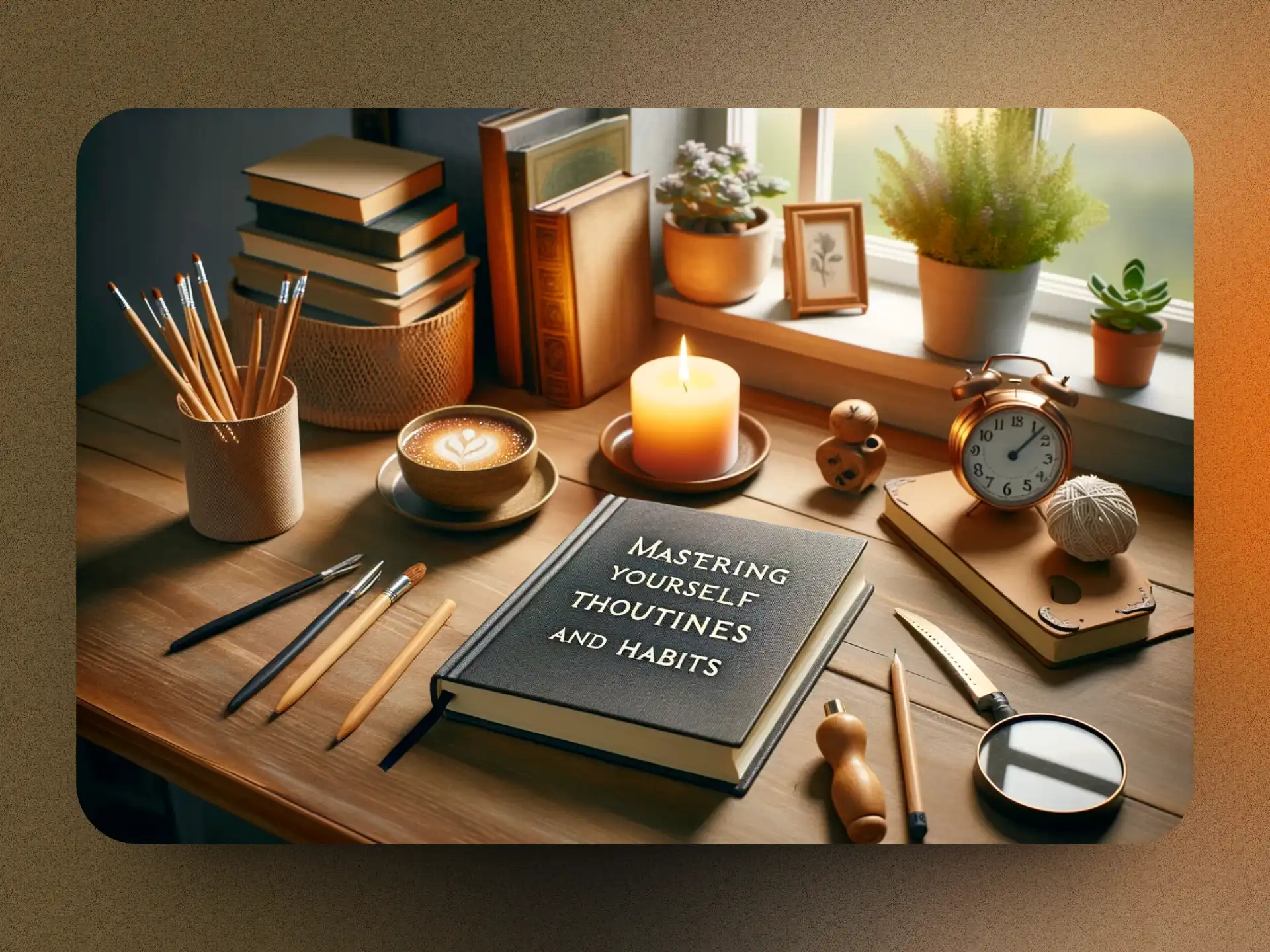
In place of distractions, we need self-imposed order and routine. As Marcus Aurelius wrote, "Everything in your life exists as it does because of your habits and behaviors."
Routines act as the scaffolding that makes achieving stillness possible. This extends far beyond meditation. It means designing regular habits around sleep, nutrition, information consumption, exercise and all facets of life.
Don't view routines as restricting freedom or spontaneity. Look at them as establishing optimal conditions for stillness and self-mastery to emerge. Create just enough structure to progress purposefully.
Building routines requires repeating desired behaviors until they become unconscious reflexes. We must accept this never-ending process of incremental improvements, not seeking instant results.
Focusing on True "Boring Fundamentals"
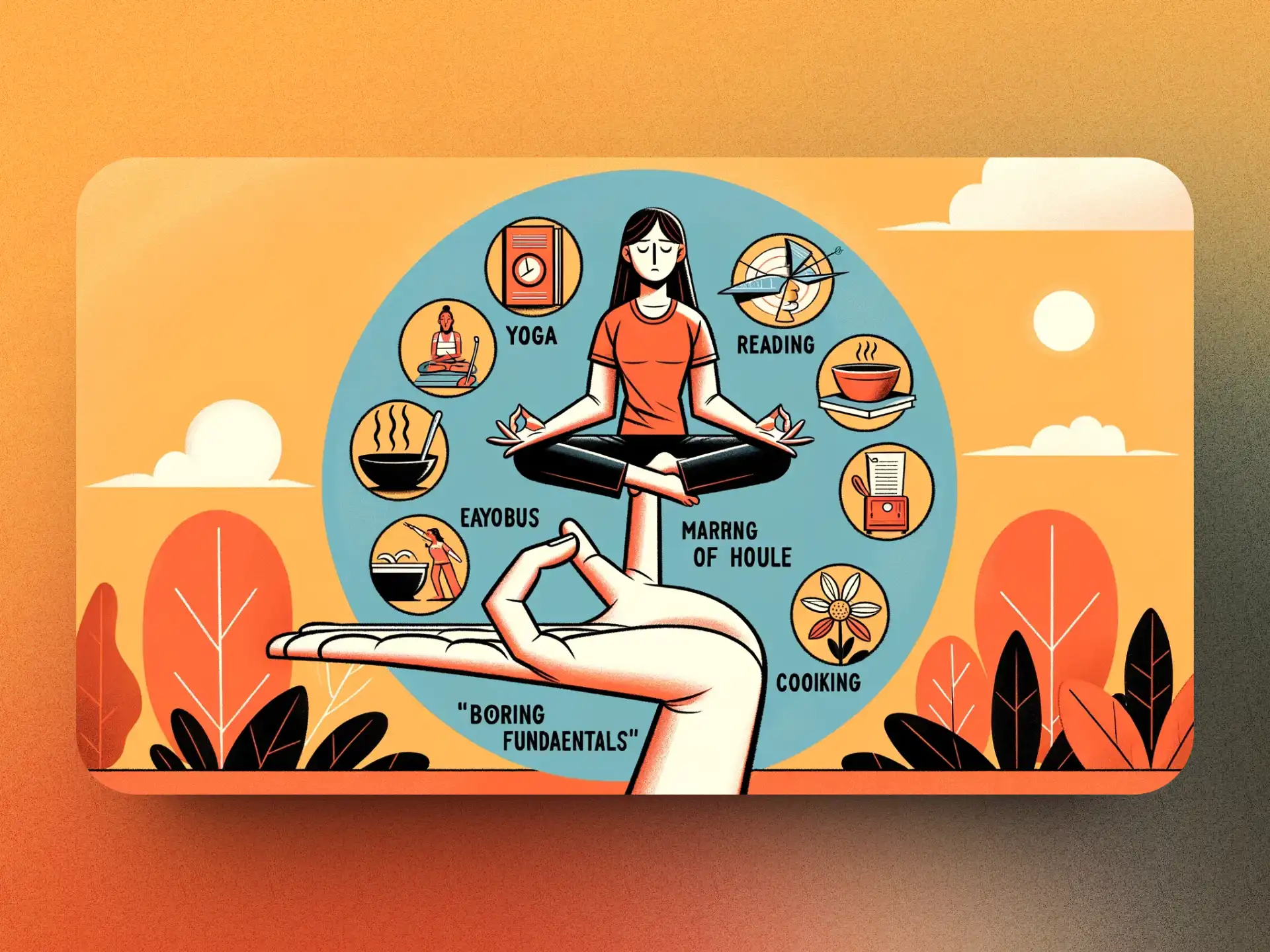
In our quest for self-mastery, we must focus on the "boring fundamentals" - simple but essential habits that compound results over the long-term.
These include:
- Establishing a consistent morning routine
- Blocking out time for deep focused work
- Regular strength training sessions
- Meal prepping healthy food
- Daily reading/learning time
Mastering the boring fundamentals is akin to a tennis pro practicing proper grip and swing technique. The basics aren't glamorous, but they pay dividends down the road.
Stillness emerges from diligently refining basics, not chasing superficial self-improvement hacks or tricks. Be more focused on your process than arbitrary external results.
Hacking Back Email and Smartphone Use

Our devices promise endless distraction masquerading as connection and productivity. Mastering stillness requires first getting email, social media and other digital noise under control.
Some effective tactics include:
- Delay opening emails to batch process them later
- Set time limits for using your phone and social media
- Disable all non-essential notifications
- Schedule set times to handle communications
- Take one day a week completely off from technology
Apply a "depth-first" approach to information - proactively seek material for learning before reacting to incoming messages. Regain agency over technology through mindful habits.
The Stillness Spiral: Progress Through Periodic Resets
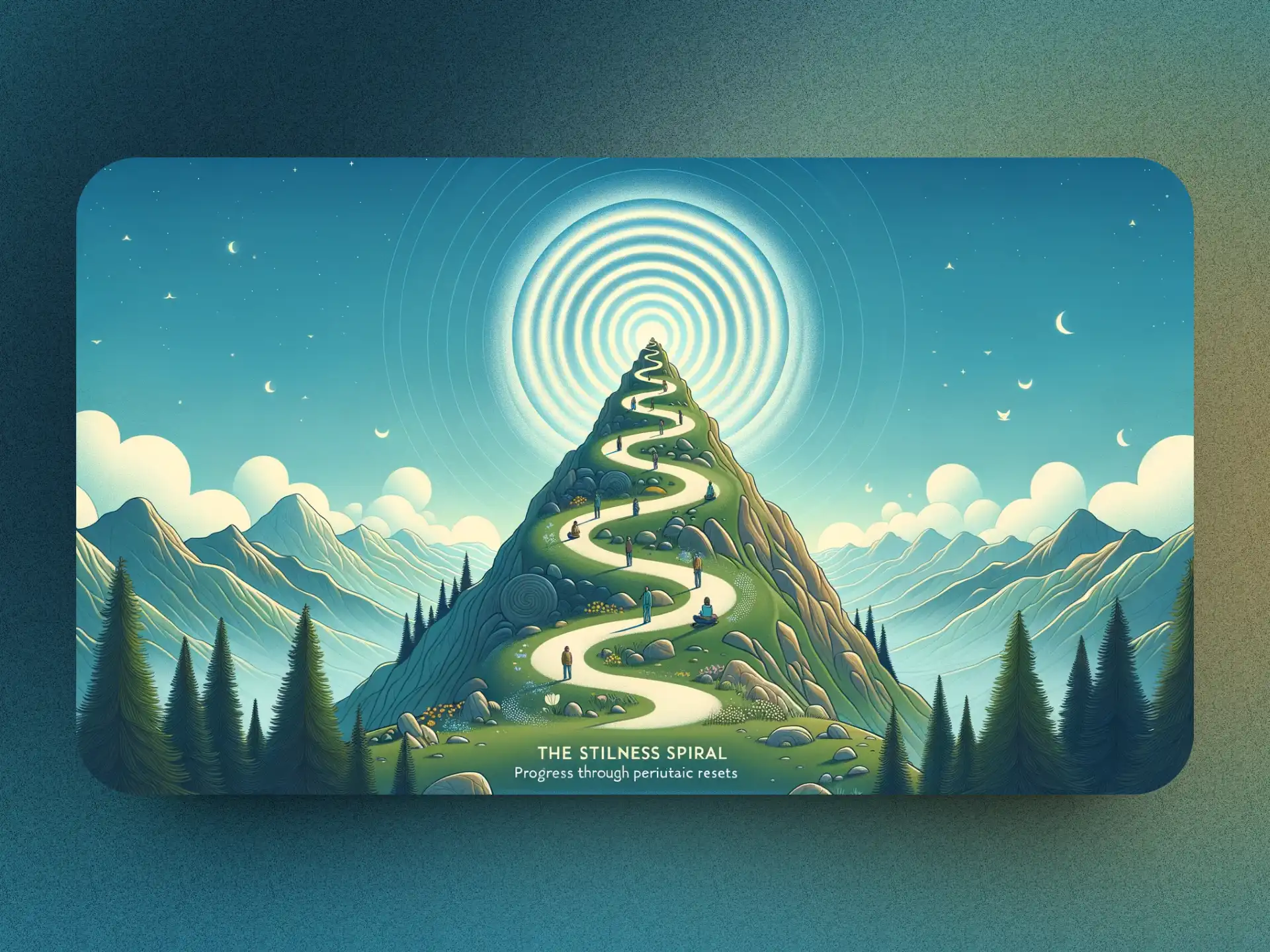
Incorporating stillness practices into daily life is an ongoing journey, not a single destination. To sustain progress, build in periodic resets every 6-12 months.
Use these resets to:
- Review your vision and realign with core priorities
- Celebrate progress made over the previous period
- Identify areas of improvement and stagnation
- Design habits and systems for the next phase
- Experiment with new practices and philosophies
These reset periods act like a spiral, helicing you upwards in your mastery of stillness and mindfulness over a lifetime.
Stillness in Motion: Active Practice Versus Idleness
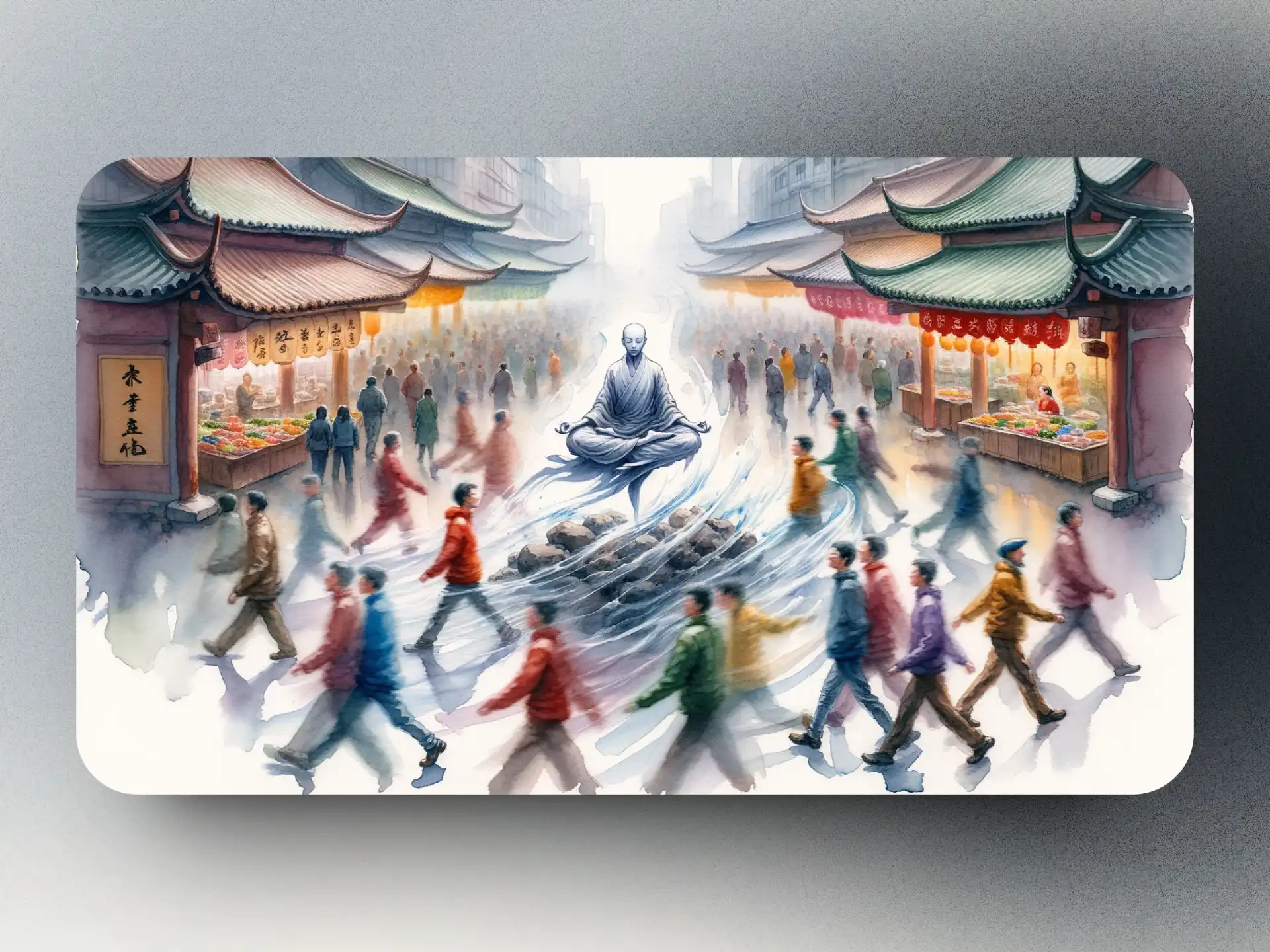
Don't confuse stillness with simply "zoning out" or wasting time being idle. Stillness is an active, engaged state honed through practice.
Consider a master martial artist moving fluidly through complex sequences. Or a composer in a state of deep creative flow. Or Michael Jordan in the clutch hitting a game-winning shot.
Though outwardly active, their minds are intensely still. By focusing on purposeful action, motion cultivates stillness. Striving brings order; idleness invites chaos.
How Much is "Enough"? Mastering Desire
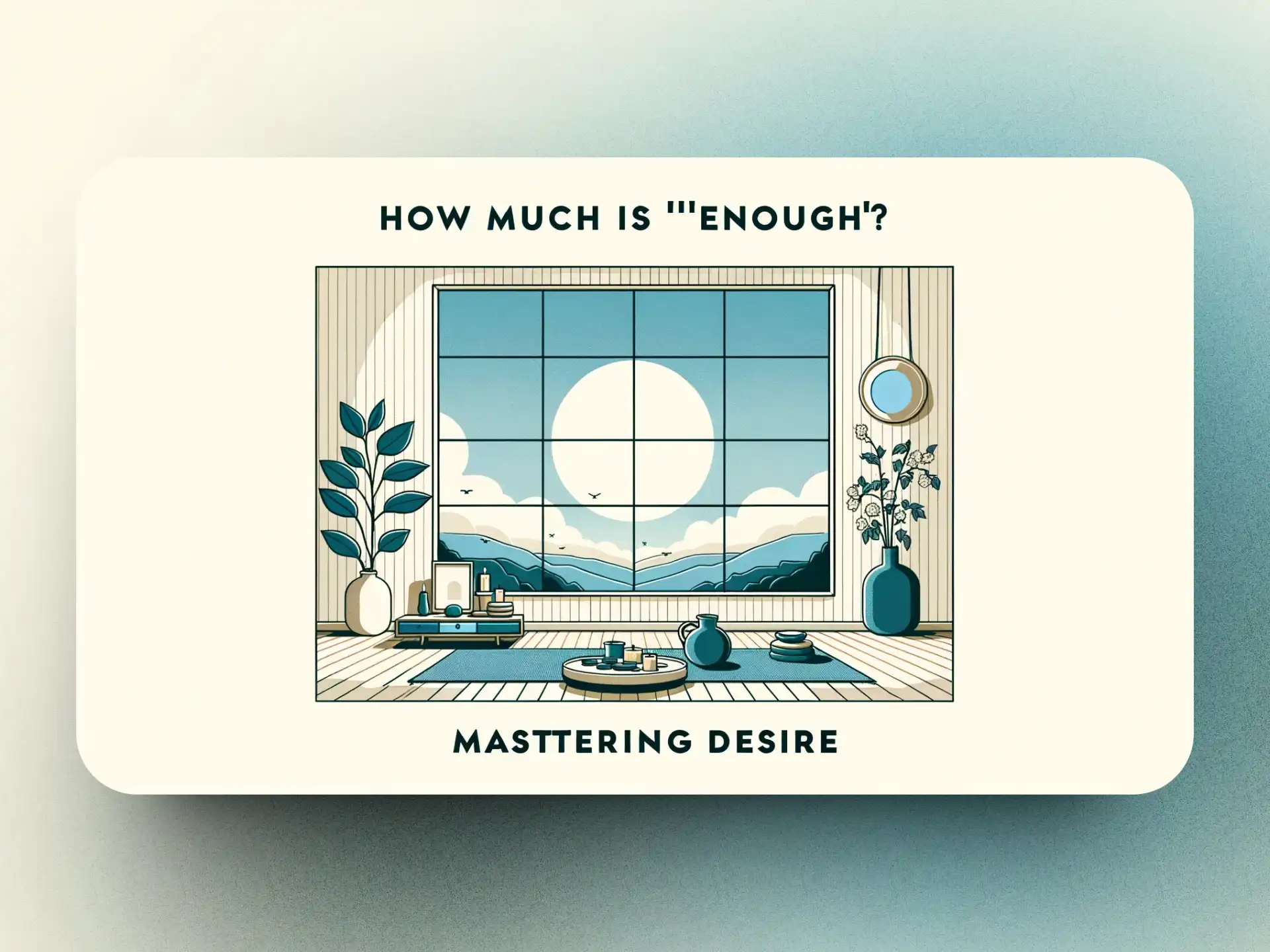
At the root of our frenetic distraction is the inability to control insatiable desires. The stoic philosophers sought to master desire through realizing how little we actually need.
Diogenes exemplified this through living a life of voluntary simplicity. When Alexander the Great, the most powerful man in the world, asks how he can help him, Diogenes replies: "Stop blocking the sunlight."
Diogenes had realized that all he needed was freely available. Our inability to realize "enough" drives us towards superficial goals that will never satisfy. Do you know how much is actually enough for you?
Stillness as Preparation for Adversity
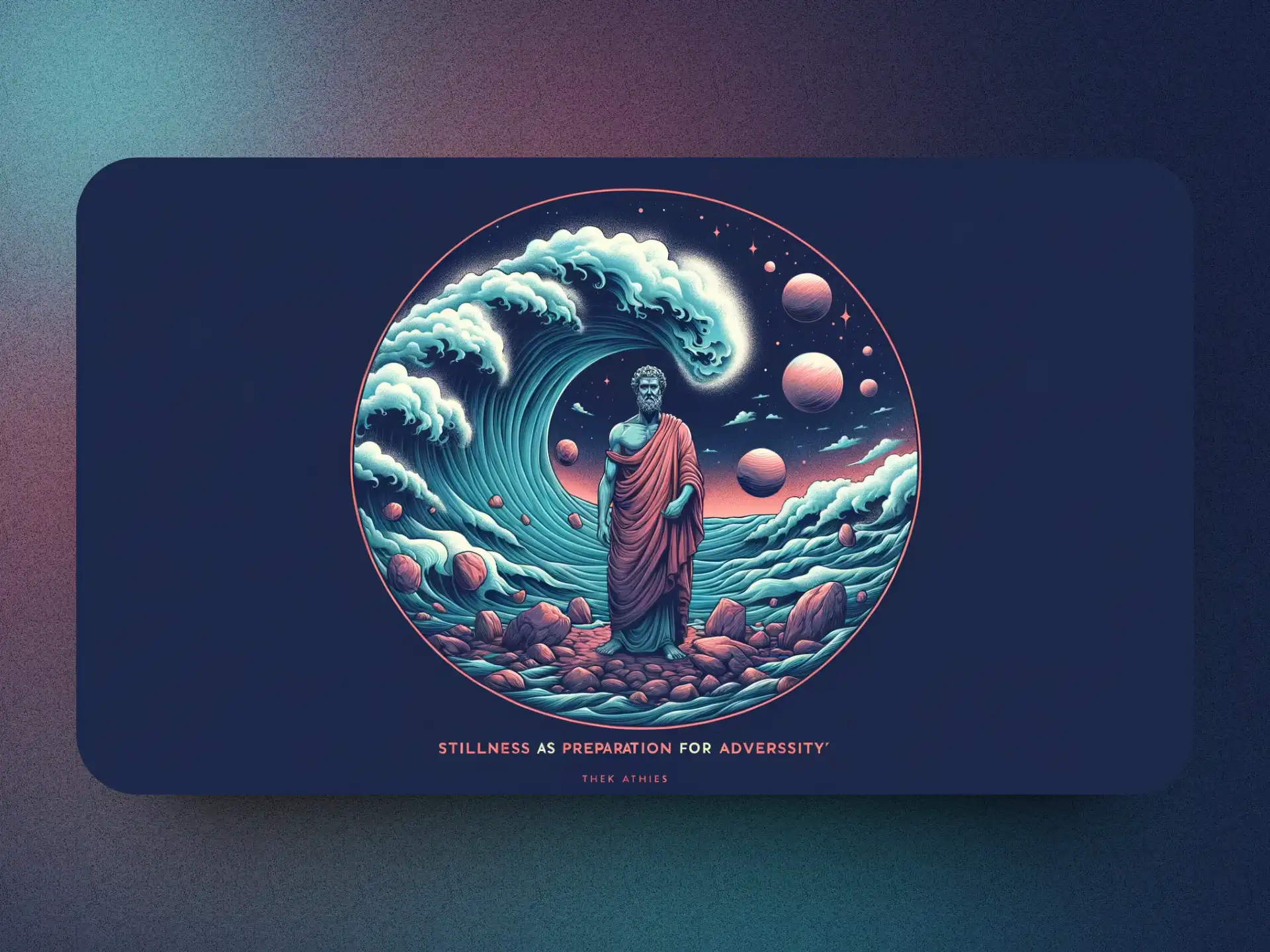
The Stoics regularly deprived themselves through practices like sleeping on hard grounds or fasting. But this was not glorification of suffering - it was preparation.
Putting oneself through controlled hardship builds resilience and mastery for when real adversity strikes. It helps us realize we can withstand and even thrive under harsh conditions.
Becoming "antifragile", to use Nassim Taleb's term, better equips us to navigate an unpredictable world and handle inevitable setbacks.
Stillness is a Daily Practice, Not an Achievement
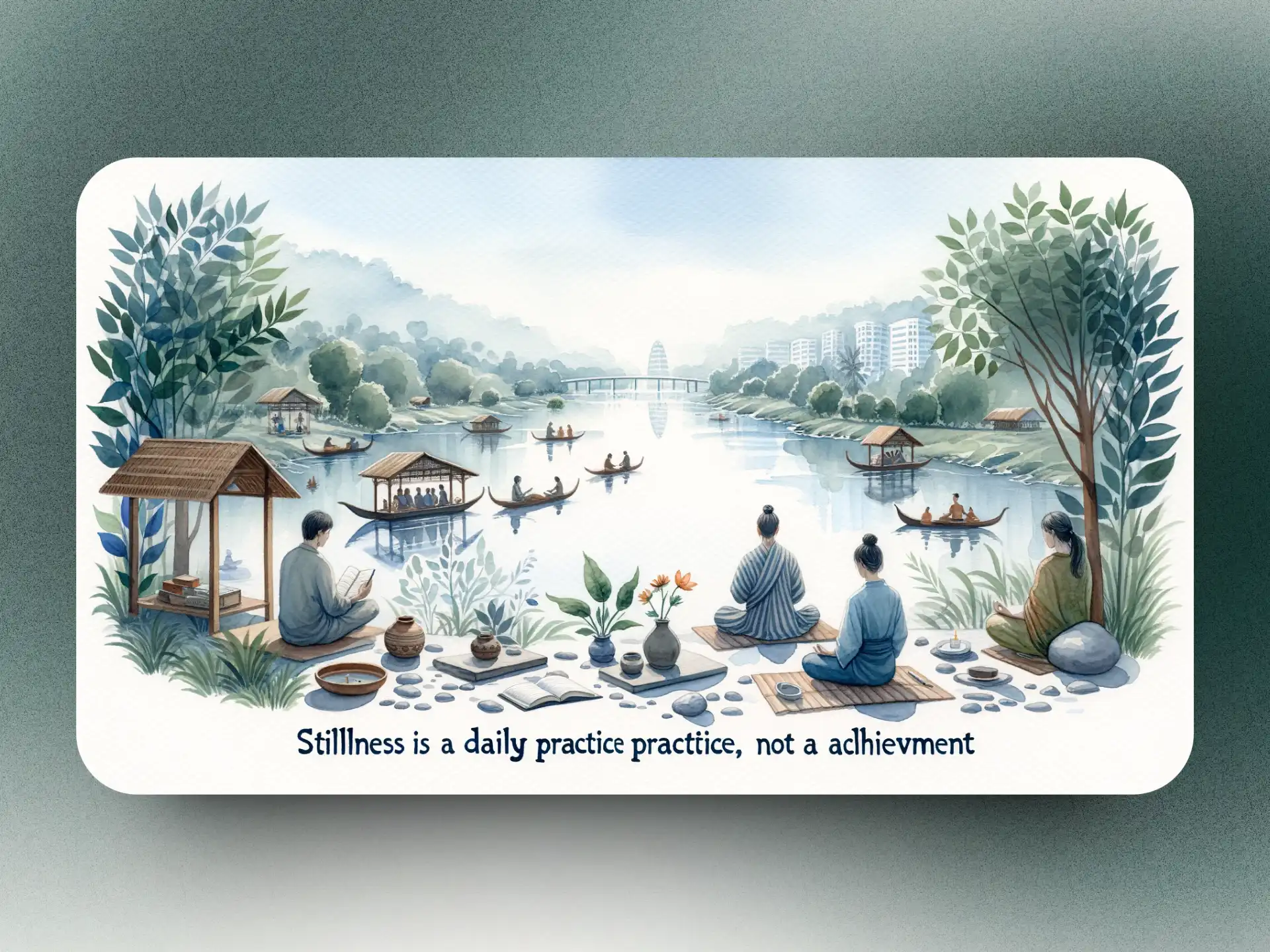
The Stoics saw philosophy as an experiential practice, not abstract knowledge. We don't simply read about stillness - we must apply philosophical principles through regular habits and training.
No one achieves stillness and is done. It requires continual practice through reflection, meditation, journaling, and mindfulness. Expect setbacks, frustrations, boredom. Progress isn't linear.
But persisting in the practice is liberating. It frees us from dependency on external validation or circumstances for inner peace. Stillness arises from within.
Key Takeaways: Cultivating Stillness in Modern Life
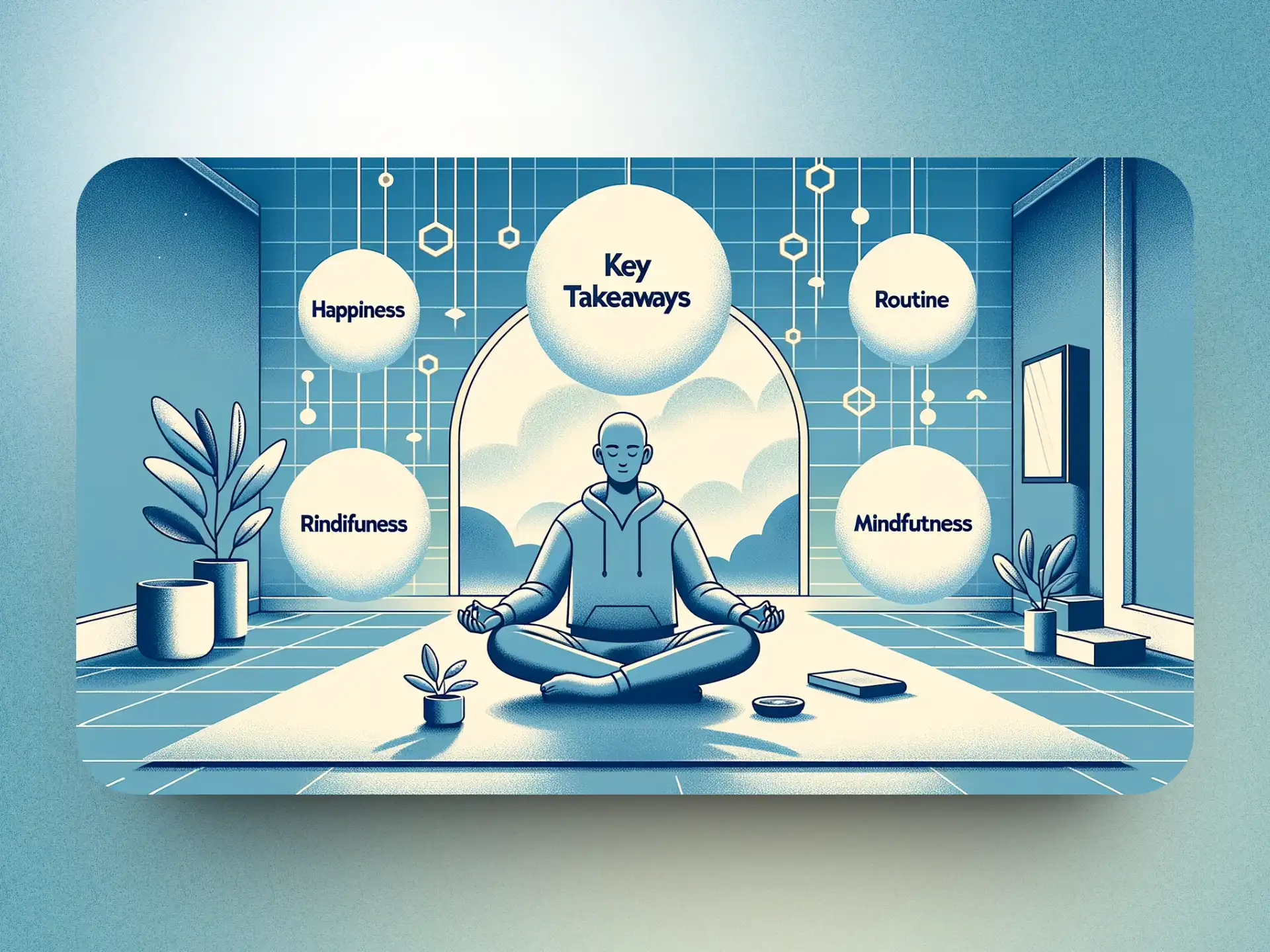
Here are some key lessons to keep in mind for bringing more stillness into your 21st century life:
- Happiness ensues from stillness. Don't chase it directly.
- Disappear from digital noise and distractions.
- Build routines that create conditions for stillness.
- Focus on refining simple but essential fundamentals.
- Develop "antifragility" - thrive under adversity.
- Realize and control your "enough" point.
- View stillness as a daily practice, not a destination.
The pressures and stress of modern life constantly conspire against stillness. But the principles of ancient Greek philosophy provide a blueprint to mute the noise and reclaim inner calm.
What lessons around stillness - from the Stoics or your own life - resonated most with you? Share your key takeaways below.




